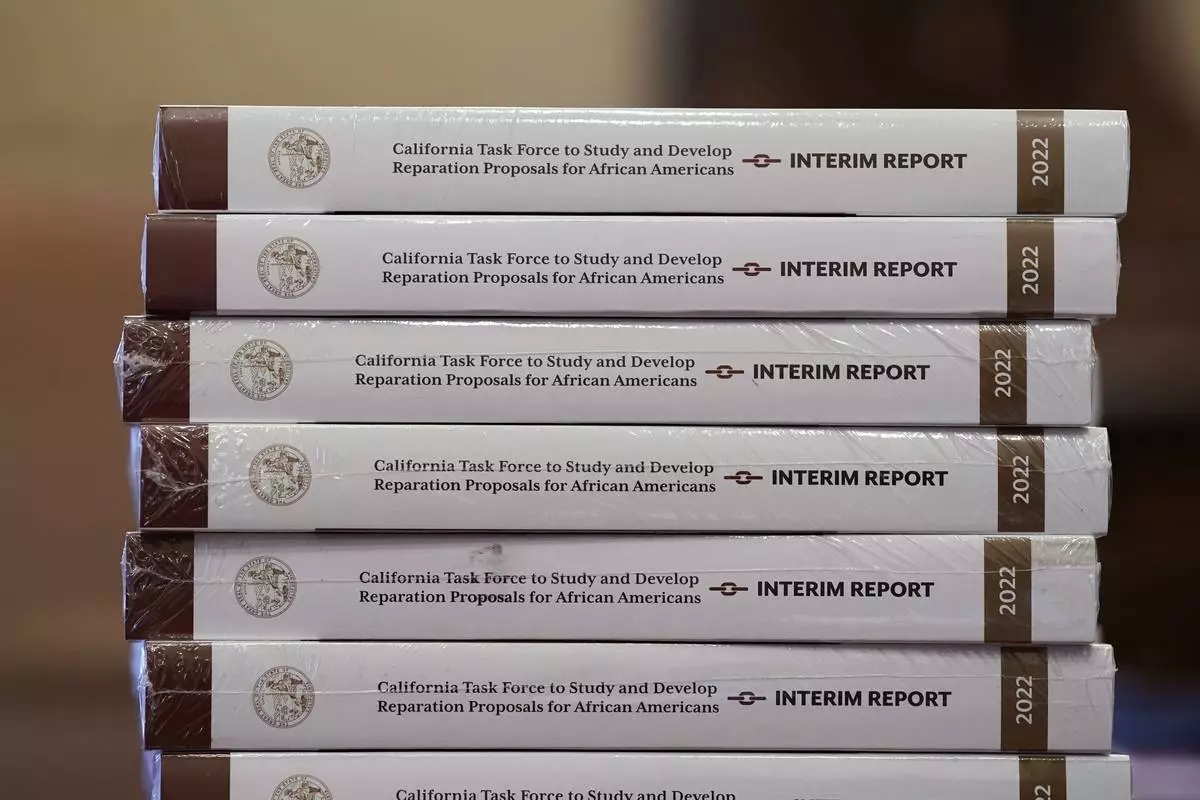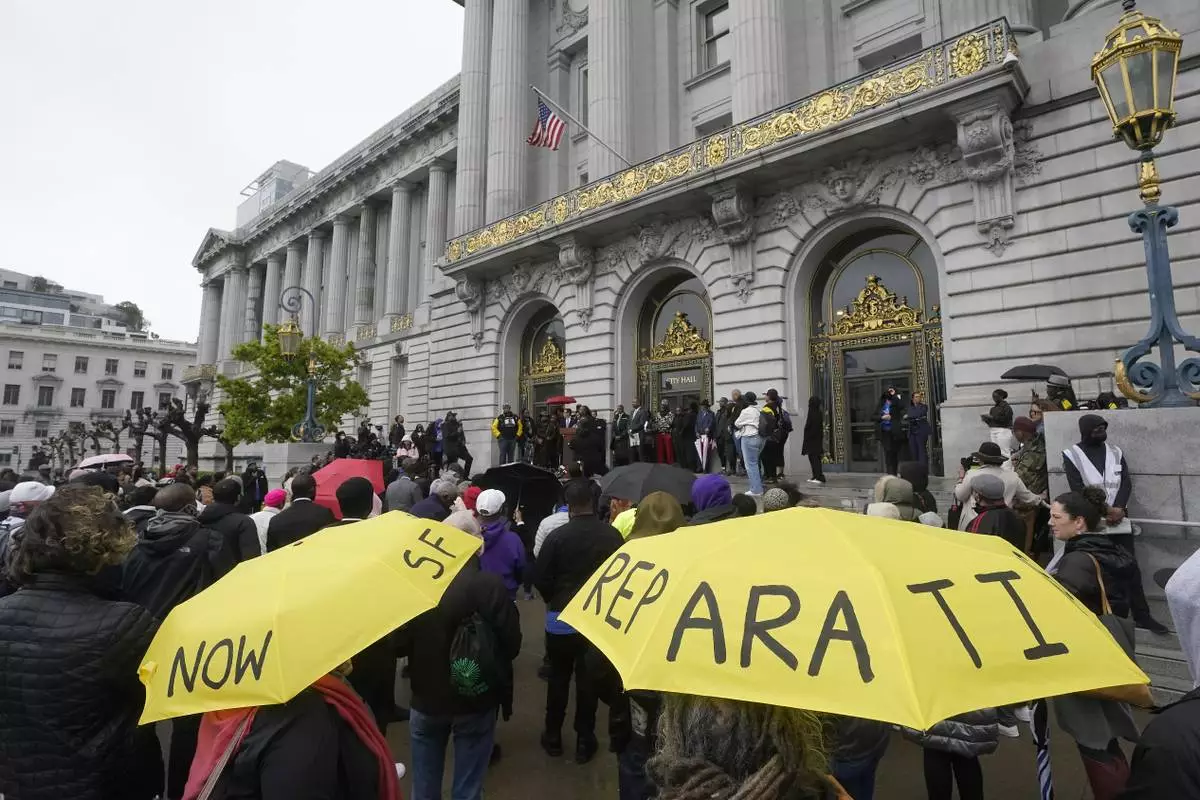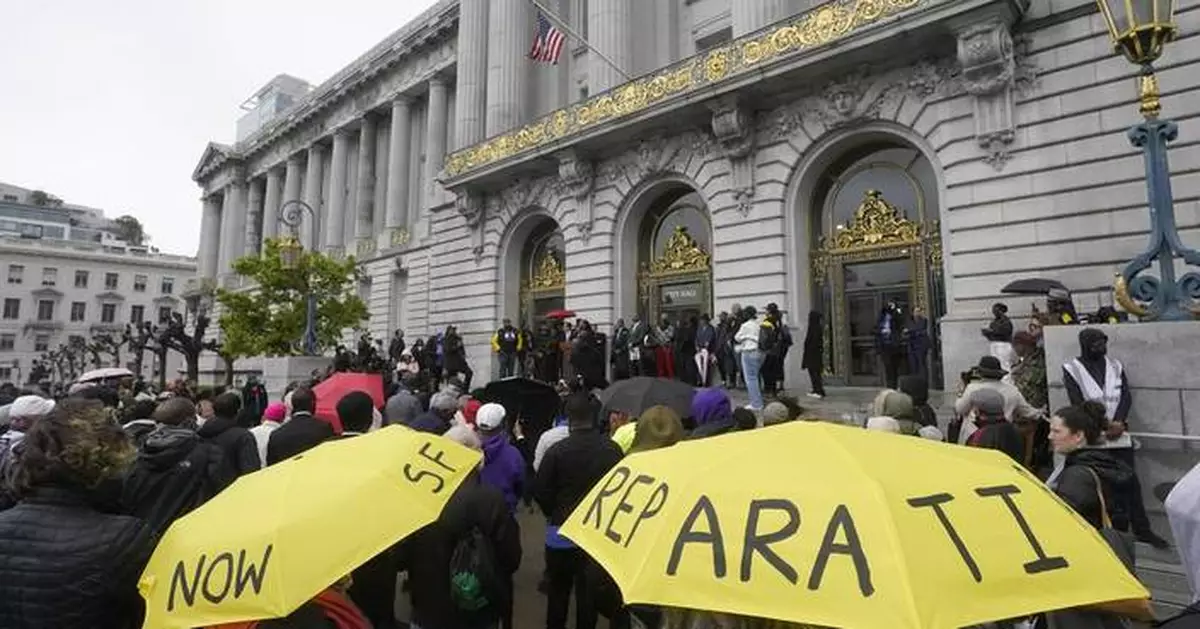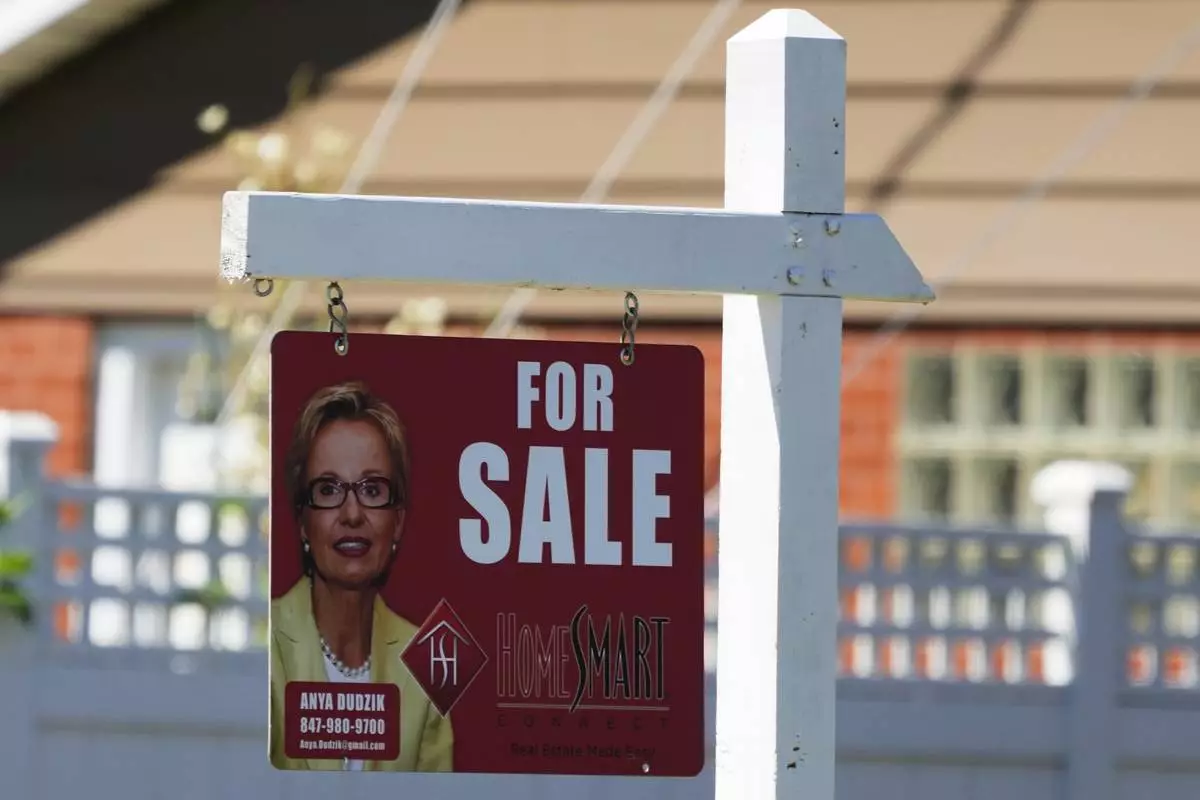SACRAMENTO, Calif. (AP) — California plans to spend up to $12 million on reparations legislation under a budget signed by Democratic Gov. Gavin Newsom, marking a milestone in the state's efforts to atone for a legacy of racism and discrimination against Black Californians.
The reparations funding in the $297.9 billion budget Newsom signed over the weekend does not specify what programs the money would go toward. Lawmakers are not considering widespread direct payments to Black Californians this year.
The state Legislature is weighing proposals to issue a formal apology for California's role in perpetuating discrimination against Black residents, to create an agency to administer reparations programs, and to identify families whose property was unjustly seized through eminent domain.
The funding comes after federal reparations efforts have stalled for decades.
“We often say the budget is a reflection of our values and our priorities, so the fact that there's any money for reparations should be a reason for celebrating,” said state Sen. Steven Bradford, a Los Angeles-area Democrat, noting he hoped the allocation would have been larger.
No state has gotten further along in its consideration of reparations proposals for Black residents than California, but some have made significant strides. Illinois and New York passed laws in recent years to study reparations proposals for African Americans. Florida passed a law in the 1990s creating a college scholarship fund for descendants of Black residents who were killed in a 1923 massacre initiated by a white mob.
But some opponents of reparations proposals being considered by lawmakers in California say taxpayers should not have to have to pay to address policies and practices from a long time ago.
“Slavery was a stain on our nation’s history, but I don’t believe it’s fair to try to right the wrongs on the past at the expense of the people today who did nothing wrong,” Assembly Republican Leader James Gallagher said in a statement. “More than a quarter of Californians are immigrants — how can we look at those people, who are struggling as it is, and say it’s on them to make up for something that happened more than 150 years ago?”
Senate President Pro Tempore Mike McGuire, a Democrat, said at an event Monday that “the $12 million is not nearly enough” but that lawmakers worked closely to secure the money during a tough budget year.
It could cost the state between $3 million and $5 million annually to run the reparations agency, according to an estimate reported by the Assembly Committee on Appropriations. The Legislature hasn't released an estimated cost to implement the eminent domain bill, but the Senate Appropriations Committee said it could cost the state hundreds of thousands of dollars to investigate claims by families who say their land was taken because of racially discriminatory motives.
Bradford introduced proposals to give property tax and housing assistance to descendants of enslaved Black people, but those were blocked in May by a key committee.
Kamilah Moore, who chaired a first-in-the-nation state reparations task force, was disappointed that lawmakers also did not introduce legislation this year to provide free tuition at public colleges for descendants of enslaved Black people, which the group recommended in its final report.
But Moore said it was still “good news” to see $12 million for reparations included in the budget as a starting point.
“It means that they're taking accountability and responsibility, and they're acknowledging the harms and the atrocities to this particular population,” she said. “That's a huge step that should not be overlooked.”
This story was first published on Jul. 1, 2024. It was updated on Jul. 3, 2024 to correct that Senate President Pro Tempore Mike McGuire said the budget included $12 million for reparations legislation, not $12 billion.
Associated Press writer Trân Nguyễn contributed to this report.
Austin is a corps member for The Associated Press/Report for America Statehouse News Initiative. Report for America is a nonprofit national service program that places journalists in local newsrooms to report on undercovered issues. Follow Austin on X: @sophieadanna

FILE - Copies of the interim report issued by California's first-in-the-nation task force on reparations for African Americans are seen at the Capitol in Sacramento, Calif., on June 16, 2022. California plans to spend up to $12 million on reparations legislation under a budget signed by Gov. Gavin Newsom, marking a milestone in the state's efforts to atone for a legacy of racism and discrimination against Black Californians. (AP Photo/Rich Pedroncelli, File)

FILE - A crowd listens to speakers at a reparations rally outside of City Hall in San Francisco, on March 14, 2023. California plans to spend up to $12 million on reparations legislation under a budget signed by Gov. Gavin Newsom, marking a milestone in the state's efforts to atone for a legacy of racism and discrimination against Black Californians. (AP Photo/Jeff Chiu, File)










